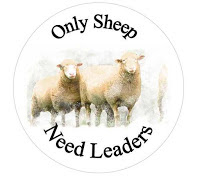Real democracy is fundamentally incompatible with the idea of leadership. It is about all of us having a direct say in the decisions that affect us. Leadership means handing over the right to make those decisions to someone else. We don’t vote for leaders to implement this or that decision; we vote according to our ideological inclinations to give them a “free hand” to make decisions. The very mechanism of decision-making we have today is a product of the social system we live under. The market economy, with its built-in contradictions and conflicting interests, has massively complicated the process of decision-making itself. It has moved it further and further from the ambit of “ordinary people” as the system itself has become more and more globalised. It is this that has made the paper pledges of our elected leaders seem increasingly irrelevant and ineffectual.
We have at our disposal today the very means, in the form of modern telecommunications, that could enable us to resuscitate the ancient model of Athenian democracy on a truly global level. What we conspicuously lack is the will and the imagination to look beyond the crippling assumption that capitalism is here to stay. In the meanwhile we delude ourselves into thinking that the economic dictatorship imposed by this class ownership of the means of living can somehow be made compatible with democratic control within a system of political “representation” which is essentially adapted to that end. But we can have a real democracy—as soon as a majority of us are prepared to replace minority class ownership with common ownership.
Until the working class understand that their interest lies in achieving socialism and not in reforming capitalism, capitalist politics in spite of such surface restlessness and re-grouping will go on in the same way as before.
In socialism there can be no question of the “most equitable” distribution, there will be only one distribution, and that will be in accordance with the needs of the individuals comprising society: and than that nothing can be more or less equitable. With socialism there will be no “best obtainable” system of administration; the system of administration will of necessity be fully democratic and consequently the best possible. Also, there can be no question of securing for the workers under socialism the full fruits of their labour; everybody capable of working will work as a social duty and will receive in return as a social right a proportion of the fruits of the labour of society, in accordance with his or her needs.
Lastly, let us point out that the use of the word “exchange” in relation to the political economy can have only one meaning: that is the exchange of commodities. If exchange is retained, commodities are retained, buying and selling are retained, and capitalism is retained.
The world is rich in untapped resources. Its wealth is incalculable. Many more acres of land could be placed under cultivation. there are millions of men and women expending their energies on unproductive work who could easily do something useful. Socialism would make this possible. Why then do the workers turn a deaf ear to the message of the Socialist Party?
Socialism offers the only cure for the problems of working people by removing poverty, economic insecurity, and the fear of war. We cannot say that everything will be perfect, that there will be no difficulties to settle. What we do say, and say it continuously, is, that in present society no problems may be solved, and no adjustments made, without first giving due consideration for the interests of a class of property owners. That only in a class-free society will these hindrances be removed, and the way thrown open for development and improvement, and that there will be no poverty problem. We offer socialism to the working class as a simple and practical solution to certain problems that face them. These problems are serious, and they become more and more urgent with time. The workers are faced with increasing insecurity set in a background of poverty and unhappiness. They are compelled to endure the kind of poverty that harms their health and puts them into premature graves.
The Socialist Party advocates and has done since 1904. socialism: nothing more, nothing less. The common ownership and democratic control of the means and instruments for producing the things we need to live. Where we all have equal access to the means of life. Only we, as a united working class, can bring this about and if you would like to know more about these ideas, why not get in touch.



No comments:
Post a Comment